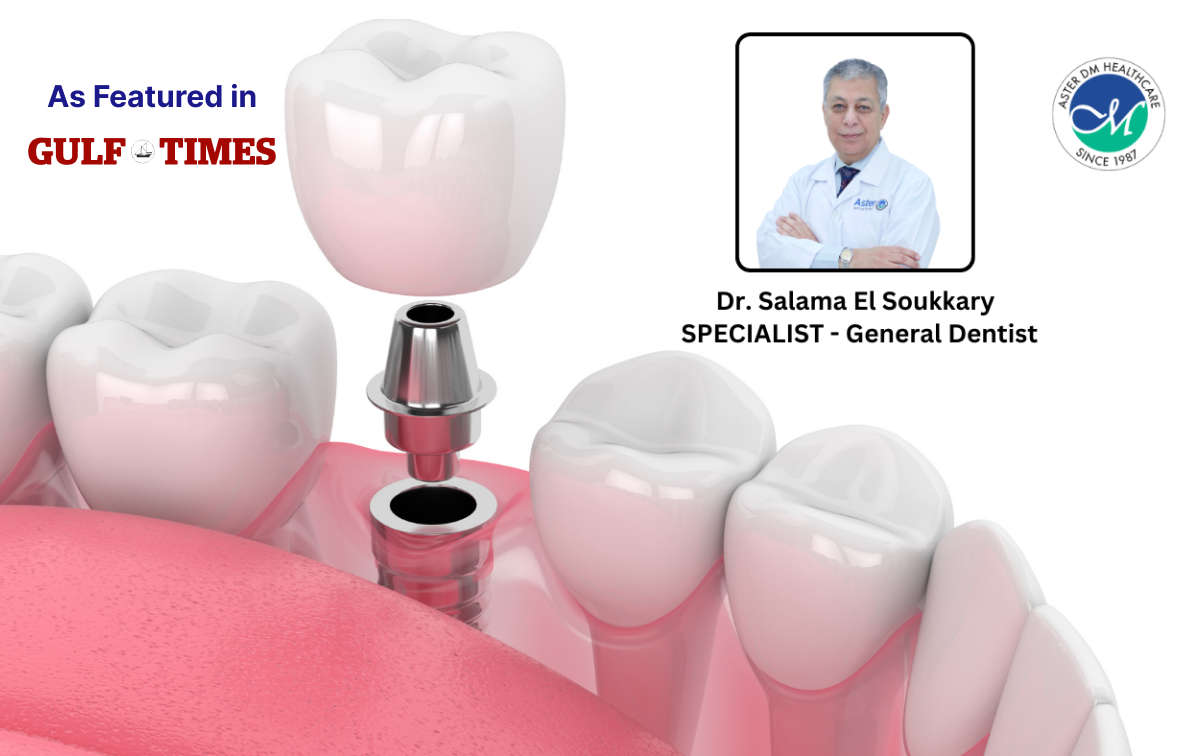Dr. Salama El Soukkary
Specialist - General Dentist
FLD, FICOI, MScOSI, American Dental National Board, Northeast Regional Dental Board, DMD, BDMS
When it comes to replacing missing teeth, dental implants and dental bridges are two popular options. Each has its unique advantages and considerations, making it essential to understand the differences between the two to make an informed decision about your oral health
What are Dental Implants?
Dental implants are prosthetic teeth that replace missing or damaged teeth by surgically attaching a titanium post to the jawbone, which serves as a sturdy foundation for an artificial tooth (crown). Implants look and function like natural teeth and are a long-lasting solution for tooth replacement.
Key Advantages of Dental Implants
- Durability: Dental implants are known for their durability and longevity. With proper care, they can last a lifetime.
- Natural Appearance: Implants closely mimic the appearance of natural teeth, providing a seamless and aesthetically pleasing smile.
- Preservation of Bone Structure: Implants stimulate the jawbone, preventing bone loss that can occur with missing teeth.
- Stability and Functionality: Implants offer stability and strength for chewing and speaking, similar to natural teeth.
- No Impact on Adjacent Teeth: Unlike dental bridges, adjacent teeth do not need to be altered or compromised to support dental implants.
Considerations for Dental Implants
- Surgical Procedure: Dental implant placement involves oral surgery, which may require healing time and careful aftercare.
- Cost: While dental implants offer long-term benefits, they tend to be more expensive upfront compared to bridges.
- Bone Health: Adequate jawbone density is necessary for successful implant placement. Bone grafting may be required in cases of bone loss.
What are Dental Bridges?
Dental bridges consist of one or more artificial teeth (pontics) held in place by dental crowns that are anchored to adjacent natural teeth. They bridge the gap created by missing teeth, restoring both function and appearance.
Key Advantages of Dental Bridges
- Non-Surgical: Unlike implants, bridges do not require oral surgery for placement, making them a less invasive option.
- Faster Results: Dental bridges can typically be placed more quickly than implants, providing immediate improvement in chewing and appearance.
- Cost-Effective: Bridges are often a more cost-effective solution than dental implants, making them accessible to a broader range of patients.
- Suitable for Some Patients: In cases where jawbone density is insufficient for implants, bridges can be a viable alternative.
Considerations for Dental Bridges
- Adjacent Tooth Alteration: To support the bridge, adjacent healthy teeth need to be prepared by removing enamel and placing crowns, which may weaken them.
- Limited Lifespan: Dental bridges have a lifespan of 5 to 15 years, after which they may require replacement.
- Bone Health: Like implants, bridges do not stimulate the jawbone, potentially leading to bone loss over time in the area of the missing tooth.
Choosing Between Dental Implants and Dental Bridges
The decision between dental implants and dental bridges depends on several factors, including your specific oral health, budget, and preferences. Here are some guidelines to help you make an informed choice:
Choose Dental Implants If:
- You desire a long-lasting and permanent solution.
- You want a restoration that closely resembles natural teeth.
- Preserving the health of adjacent teeth is essential to you.
- You are willing to undergo oral surgery and invest in a more substantial upfront cost for long-term benefits.
Choose Dental Bridges If:
- You prefer a non-surgical and more cost-effective option.
- Immediate results are a priority.
- You have concerns about the current health of adjacent teeth.
- You are unable or unwilling to undergo dental implant surgery.
Dental implants and dental bridges are both valuable solutions for replacing missing teeth, each with its own set of advantages and considerations. The choice between the two should be made based on your individual needs, oral health, and budget. Consulting with a qualified dentist or prosthodontist is crucial to assess your specific situation and determine which option aligns best with your long-term oral health goals. Whether you opt for dental implants or dental bridges, both can restore your smile and improve your overall quality of life.
